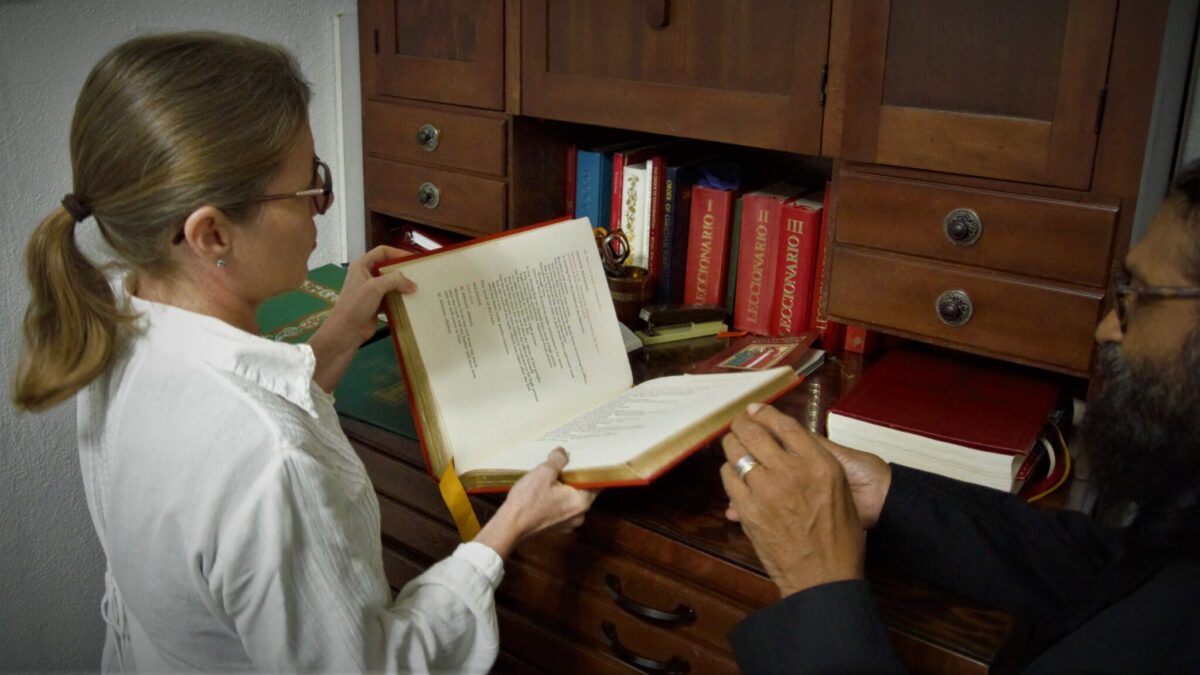
Lay ecclesial ministry is a vital part of the Catholic Church, involving non-ordained members who take on leadership roles. These dedicated individuals work in various capacities, such as pastoral associates, youth ministers, and directors of religious education. But what exactly is lay ecclesial ministry? In simple terms, it refers to the service and leadership provided by laypeople who have received proper training and authorization from the Church. They collaborate with ordained ministers to support the spiritual and administrative needs of their communities. This ministry has grown significantly over the past few decades, reflecting the evolving needs of the Church and its members. Let's dive into 20 intriguing facts about lay ecclesial ministry that highlight its importance and impact.
What is Lay Ecclesial Ministry?
Lay ecclesial ministry refers to the roles and responsibilities undertaken by laypersons in the Catholic Church. These individuals are not ordained clergy but play significant roles in the church's mission. Here are some intriguing facts about lay ecclesial ministry.
-
Lay ecclesial ministers often work in parishes, schools, and diocesan offices. They contribute to various aspects of church life, including education, administration, and pastoral care.
-
The term "lay ecclesial ministry" was officially recognized by the U.S. Conference of Catholic Bishops in 2005. This recognition helped formalize the roles and responsibilities of laypersons in ministry.
-
Lay ecclesial ministers undergo extensive training and education. Many hold degrees in theology, religious studies, or pastoral ministry, ensuring they are well-prepared for their roles.
The Role of Lay Ecclesial Ministers
Lay ecclesial ministers serve in diverse capacities within the church. Their roles are vital for the church's functioning and outreach.
-
They often lead religious education programs. This includes teaching children, youth, and adults about the Catholic faith and preparing them for sacraments.
-
Lay ecclesial ministers provide pastoral care. They visit the sick, counsel parishioners, and offer support during times of crisis.
-
They play a key role in liturgical planning and coordination. This involves organizing Masses, special services, and other religious ceremonies.
The Impact of Lay Ecclesial Ministry
The contributions of lay ecclesial ministers have a profound impact on the church and its members.
-
They help bridge the gap between clergy and laity. By serving in various capacities, they make the church more accessible and relatable to parishioners.
-
Lay ecclesial ministers often bring fresh perspectives and new ideas. Their diverse backgrounds and experiences enrich the church's mission and outreach.
-
They foster a sense of community within the parish. Through their work, they help build strong, supportive relationships among parishioners.
Challenges Faced by Lay Ecclesial Ministers
Despite their significant contributions, lay ecclesial ministers face various challenges in their roles.
-
They often work long hours with limited resources. Balancing multiple responsibilities can be demanding and stressful.
-
Lay ecclesial ministers may encounter resistance from some clergy or parishioners. Not everyone is comfortable with laypersons taking on significant roles within the church.
-
They may struggle with job security and fair compensation. Unlike ordained clergy, lay ecclesial ministers do not always receive the same level of financial support or job stability.
The Future of Lay Ecclesial Ministry
The role of lay ecclesial ministers continues to evolve, with new opportunities and challenges emerging.
-
There is a growing recognition of the importance of lay ecclesial ministry. More dioceses and parishes are investing in training and support for lay ministers.
-
Technology is changing the way lay ecclesial ministers work. Online education, virtual meetings, and digital resources are becoming increasingly important.
-
The role of lay ecclesial ministers is expanding. They are taking on more leadership positions and becoming more involved in decision-making processes within the church.
Lay Ecclesial Ministry Around the World
Lay ecclesial ministry is not limited to the United States; it is a global phenomenon.
-
In many countries, lay ecclesial ministers play a crucial role in the church's mission. They often serve in areas where there are few ordained clergy.
-
Lay ecclesial ministry varies widely from one country to another. Cultural, social, and economic factors influence how laypersons serve in the church.
-
International organizations support lay ecclesial ministry. Groups like the International Catholic Lay Association provide resources and networking opportunities for lay ministers worldwide.
Personal Stories of Lay Ecclesial Ministers
The experiences of lay ecclesial ministers are as diverse as the individuals themselves.
-
Many lay ecclesial ministers feel a deep sense of calling. Their work is not just a job but a vocation that brings them fulfillment and joy.
-
Personal stories highlight the impact of lay ecclesial ministry. From transforming lives to strengthening communities, lay ministers make a significant difference in the church and beyond.
Final Thoughts on Lay Ecclesial Ministry
Lay ecclesial ministry plays a vital role in modern religious communities. These dedicated individuals, often working behind the scenes, provide essential support and leadership. They bridge gaps between clergy and laity, ensuring that the church's mission reaches everyone. Their contributions, from teaching to pastoral care, enrich the spiritual lives of many. Recognizing their efforts not only honors their commitment but also encourages more people to step into these roles. As the church evolves, the importance of lay ecclesial ministers will only grow. Their unique perspectives and skills bring fresh energy and ideas, helping to address contemporary challenges. By supporting and valuing these ministers, communities can foster a more inclusive and dynamic faith experience. So, next time you see a lay ecclesial minister, take a moment to appreciate their hard work and dedication. They truly are the unsung heroes of the church.
Was this page helpful?
Our commitment to delivering trustworthy and engaging content is at the heart of what we do. Each fact on our site is contributed by real users like you, bringing a wealth of diverse insights and information. To ensure the highest standards of accuracy and reliability, our dedicated editors meticulously review each submission. This process guarantees that the facts we share are not only fascinating but also credible. Trust in our commitment to quality and authenticity as you explore and learn with us.


